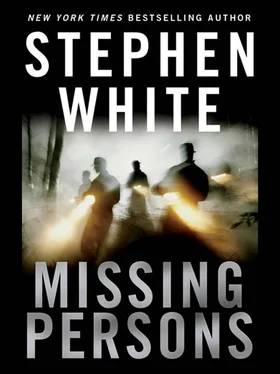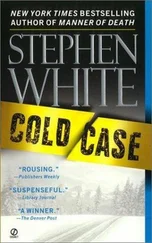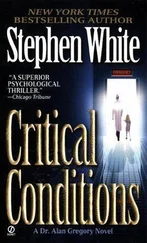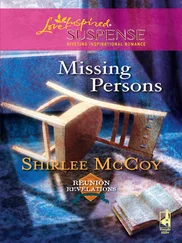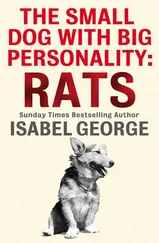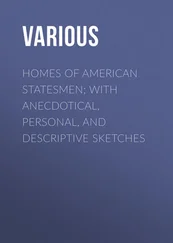“Diane? You there?”
That’s when the call died.
Diane didn’t call right back.
I gave her five minutes before I tried to reach her. Her cell phone rang and rang and rang before it clicked into voice mail.
I waited half an hour, hitting redial again every ten minutes or so with the same result. I was chewing on the possibility that technology had failed somewhere, that her phone had died or that the network had burped.
Soon I started thinking that she’d simply changed her mind about talking to me right then. Maybe she’d passed an open seat at a twenty-dollar blackjack table that she was sure had her name on it in raised gilded letters, or she’d eyed a spot at a new table and thought she’d seen steam rising from those dice.
I also considered the possibility that she’d run into someone she knew-Diane knew more people than anyone I’d ever met-while making her way out of the cavernous casino, and that they had headed somewhere for a drink or a meal or… what?
Diane, I guessed, was staying at the Venetian, the mid-Strip gambling palace that was decked out to look like Venice, Italy; that’s the hotel where she’d booked us to stay the weekend after Hannah’s death. I’d never been, but she’d told me that the canals in the hotel were lined with shops and I knew from long experience with Diane that a garish SALE sign in a store window could have distracted her. Easily.
All were reasonable explanations. But none, I thought, were likely.
Had her plans changed, Diane would have called me back and told me she’d talk to me later. She certainly would have picked up my call to her cell. Were her cell not working properly she would have gone to a pay phone and called me the old-fashioned way. After tracking down the mother of a missing girl-a girl who was the patient of Diane’s dead friend-and after telling me she had news I needed to hear, Diane would have done something to reach me. She wouldn’t have left me hanging, waiting, wondering.
She wouldn’t.
I called Raoul at home to see if he’d heard from her. He wasn’t there.
I followed happy voices down the hall and found Lauren and Grace on the bed in the master bedroom, where I interrupted Lauren’s dramatic rendition of Alice in Wonderland . She told me she thought she had Raoul’s mobile number in her Palm. With monumental inefficiency, and only after pecking enough tiny faux buttons to book an entire round-trip flight to Kathmandu-including arranging for Sherpas-I tracked down Raoul’s mobile number and dialed the ten digits.
“Raoul,” he answered almost immediately.
He sounded tired. The usual gorgeous timbre of his voice was disguised by the wireless ether.
“Hey, Raoul. It’s Alan. Where are you?”
“San Francisco, consulting at a clueless incubator. How these people expect to make any money is beyond me. What’s wrong?”
His question made perfect sense. I don’t think I’d ever before called Raoul on his mobile phone. Instinctively, he knew I wasn’t calling him in San Francisco to recommend a restaurant.
“It’s probably nothing,” I said.
He replied, “Mierda.”
Raoul’s voice, when he wanted it to, carried no echoes of his childhood in Catalonia. I’d never given much thought to whether or not the tonal charade required much of his energy or attention. I’d always assumed that he could move back and forth between the American and Catalonian accents effortlessly, the way that a skilled actor does Kerry one minute and New Jersey the next.
Raoul said, “Back up. When did all this start? When did she call you?”
I heard echoes of Barcelona, and of worry, in his perfect English. I supposed that I was hearing the Barcelona only because I was hearing the worry. The caller ID unit by the phone told me that Diane’s call to me from the craps table had come in exactly forty-seven minutes earlier.
“Forty-five minutes ago,” I told Raoul.
“So she’s been out of touch less than an hour?”
“Right.”
“That’s not a big deal.”
I’d been doing the same comfort calisthenics. But I clearly remembered the intensity of Raoul’s barely contained outrage while Jaris Slocum was holding Diane hostage in the backseat of the patrol car after Hannah Grant’s death, and I remembered how resistant he’d been to any reassurance at that time. I knew that all the fret-yoga he was doing to convince himself that the current circumstances were some version of ordinary wouldn’t, ultimately, do him a bit of good. Diane being out of touch for forty-seven minutes in the current circumstances required explanation.
And when I told him what I knew, I knew he’d agree with me.
“Raoul? Do you know why Diane went to Las Vegas?”
He spent a couple of heartbeats mining the apparent innocuousness of my question for innuendo before he replied, “She likes it there. She missed her chance last month when… you know.”
“Do you know why she went now?”
There it was again. The shrink’s “precipitating event” question.
Why now?
Raoul was one of the brightest people I’d ever met. I could almost hear the gears turning in his head as he tried to make sense of the bare glimpse he was getting as he strained to see where it was that I was leading him.
“She told me that a patient’s mother was there. In Vegas. Somebody she wanted to talk to about a case. That was her excuse, but she really wanted to play craps and the mountain casinos have a five-buck limit. Small bets bore her.”
“It wasn’t one of her patients’ mother she was planning to talk to, Raoul.”
“I don’t follow.”
“The patient whose mother is living in Las Vegas? That patient wasn’t Diane’s; it was Hannah Grant’s.”
I could hear his breath blow hard against the microphone. “And you knew this? You knew that was why she was going?”
It was an accusation. His unspoken words were “And you let her?” I felt his finger pointing at me physically, felt it mostly in my gut. I could no more have stopped Diane from going to Las Vegas than I could prevent January from being colder than July. But that didn’t matter to Raoul, not then.
“She told me she was thinking about it, about going to Vegas to talk with this woman. But I thought she was just being provocative with me. You know how she is. I didn’t think she’d really go.”
“Diane always does things that other people don’t think she’ll do. It’s who she is.”
It was another accusation. And it was right on target. “I wish I’d listened to her. I’m sorry.”
Raoul had no time for my mea culpas . “Had she talked to this person, yet? This mother?” he asked.
Before I replied I used a moment to recall the specifics of my last conversation with Diane. “When we talked, she told me that she’d found her, tracked her down. I don’t know whether or not she actually spoke with her. I think that’s what she was going to tell me when she got outside. She said it was important.”
“You know what patient it is, don’t you, Alan?”
My impulse was to hesitate, to cover my ass. To my credit, I didn’t. I mouthed a simple “Yes.”
“You know who the mother is, too?”
“Yes.”
“You’re going to tell me.”
“You know how this works.”
Raoul was the husband of a psychotherapist. Spouses of mental health professionals know the rules. He said, “This is Diane we’re talking about. You are the one who had better know how this works.”
I tried to deflect him, to steer him back to the current crisis. I said, “I don’t even know where’s she staying. Where do you stay when you’re there?”
He took a deep breath. “I try not to go at all if I can help it, but where faux Italian is concerned I prefer the Bellagio. The fountains are… something. She’s at the Venetian,” he said, confirming my suspicion. “She likes the canals. I take her to Venice, I take her to St. Petersburg, I take her to Amsterdam; it turns out the canals she likes best are inside some vapid casino in Las Vegas.”
Читать дальше
